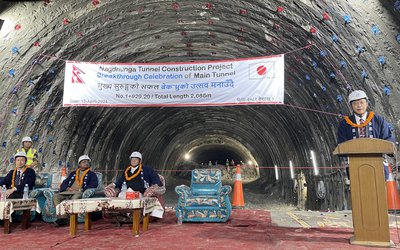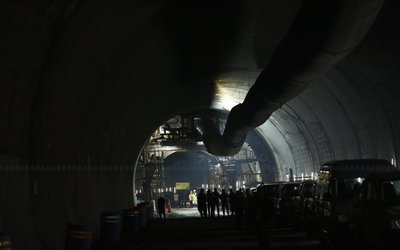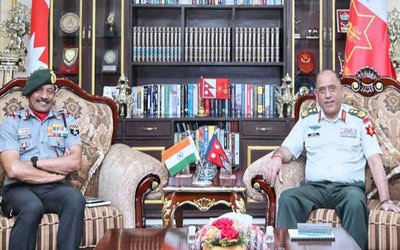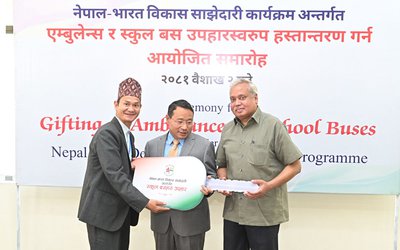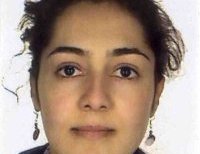
One only has to ask a French traveler to get the current viewpoint about Nepal in France. “Himalaya, Sherpa…?”. But the most noteworthy prejudice comes later, when that traveler looks for more information regarding the country. Along with geographical and historical information are described economic particularities. “Nepal, one of the poorest countries in the world”. Nonetheless, what if we focus on the political level and try to put the economic field apart, for once?
Well, France and Nepal do not seem so different. In both countries corruption affairs are disclosed on a regular basis. Ongoing efforts to endeavor political representation of every citizen have been implemented in order to struggle against discriminations of all kinds. A Nepalese project called Rights, Democracy, Inclusion Fund was lead between 2006 and 2012 to assert equal political participation of everyone. French associations as “Les Mariannes de la diversité” very active over the last two years, or “Les Sans Voix”, are willing to stop gender-based discriminations and call for more rights of oppressed minorities. Finally, Nepalese local governance structure through provinces and districts looks like the French one with its “regions” and “départements”.
Needless to mention exhaustively all the similarities both countries have in common to notice that those democratic states definitely share much between each other. Therefore, what would be the main point distinguishing them? That may be tough to find out. Starting with which represents the fundamental basis of democratic system, that means elections, might allow making it raising up.
Unlike the French electoral system characterized by a president elected through universal suffrage and a bicameral parliament, the Nepalese electoral system encourages proportional representation within elections of deputies. The president is then elected by those deputies. One may ask why opposed choices have been made in terms of elections in two representative democracies. It appears obvious while looking at respective historical and cultural backgrounds.
Nepalese farmers fighting for the improvement of their life conditions increased the number of Maoist proponents, which provided consistency and greater power to the Maoist ideology in opposition to the Monarchy. Moreover, existence of numerous ethnic groups located in precise areas made proportional representation the best means to express “people’s voice”. In France where immigrated minorities from diverse countries are scattered all around the country, and after political instability of a parliamentary political regime, a uninominal majority electoral system was supposed to meet the needs of a stable democratic state.
Is there any best way to match the perfect democratic system, to represent at most citizen’s voice?
At a time when social networks have drawn an image of horizontal governance, vertical political governance remains strong. Most of the French senior officials come from prestigious schools with a solid reputation inaccessible for common alumnus; not so much for the workloads but for the specific knowledge of aristocratic tradition required for passing the first step and being accepted in those schools. This is what point out the French P. Bourdieu and J-C Passeron in a book published in 1964.
Similarly, today, in a state dominated by elected Maoist political parties that advocate equal representation among “the people”, could political representatives have possibly become the new monarchs of the state?
Once again the issue would require years of research. Nevertheless, findings can be revealed through simple observations. Local bodies have not got elected representatives since 2002. Elections were indeed replaced with an All Party Mechanism that consists of governmental political parties appointing representatives without holding any elections. That system was phased out in 2011. The first political institution to prevent political elite from emerging is consequently inefficient. Another observation of precedence related to local bodies regards a critical organ in the democratic political organization: political parties. Recently more concerned about ethnic conflicts and constitutional matters than practical issues, political parties seem unable to address the needs of Nepalese people for daily life concerns. Improvement of the waste management sector or water sanitation is for instance often the consequence of civil society organizations. First because more and more local initiatives have been developed (projects as PRISM lead in partnership with INGOs for the first one; work undertaken by Volunteers Initiative Nepal for the second one). Secondly because the Nepalese government sometimes faces necessity of a large consensus at the national level or the obstacle of international laws (water resources being for example shared between India and Nepal).
France and Nepal still look similar after second thoughts. Politicians, on whom many French people have been complaining about (what few scholars call the “crisis of representation”), have a long way before being seen on the heaven side of the life wheel.

Chanda Rana
RANA is an environmental and heritage activist. Currently, She has been launching a campaign to save 2.4 million trees in Nijgardh and several other heritage save campaigns. .
- Churia Tunnel Is First Tunnel Of Nepal
- Nov 12, 2019
- 'We Need Second International Airport But Not At The Cost of 24 Lack Trees '
- Feb 11, 2019
- EIA of GEOCE to Neejgadh International Airport Construction Is Totally Unacceptable"
- Dec 26, 2018
- An Appeal To The Rt. Honorable President Bidhya Devi Bhandari
- Dec 01, 2018
- Presence Of My Father At Neejgadh Jungle
- Oct 31, 2018


